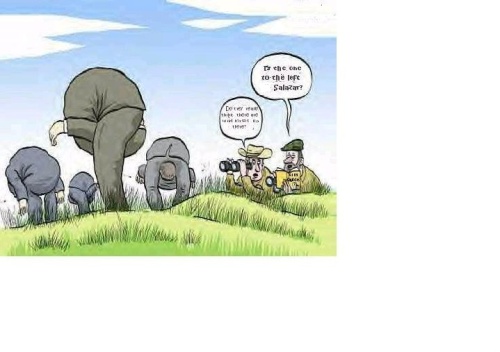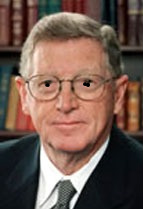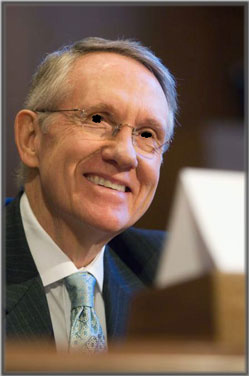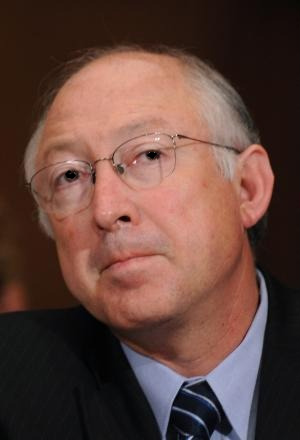WALLIS SAYS – Concerned citizens who sincerely seek the well-being of horses should understand that animals of all kinds require management and control. No jurisdiction in the country allows feral animals or native wildlife to reproduce unchecked to the point where they have eliminated their resource base and are starving, dying, and destroying the environment for all other species. The same immutable laws of nature apply to horses. To protect people and the environment, horses must be sold, adopted or used by someone who has the resources to care for them, or be humanely euthanized, just like the local small animal shelter euthanizes unadoptable animals.
THE REALITY – The wild horses have been proven by DNA testing NOT to be feral but true decedents of Mustangs that roamed our lands for thousands of years. No scientific evidence has been provided to justify removal of wild horses from public lands. If the public lands can sustain over 7.5 million privately owned cattle, the land can surely sustain 50,000 wild horses. The GAO study has determined that the range deterioration was a result of the cattle, not the horses.
Saturday, October 24, 2009
Tragedy at Dakota Wild Horse Auction

from dickinson press newspaper, dickinson, north dakota
http://www.thedickinsonpress.com/event/article/id/28646/
Issues arise with TRNP wild horses at auction
Lisa Call – 10/24/2009
A wild-horse auction turned chaotic when a stud tried to jump a fence, another horse escaped during loading into a trailer and another reportedly died Friday afternoon in Dickinson.
To control population and administer a research contraceptive, wild horses in Theodore Roosevelt National Park near Medora were rounded up earlier this week and sold at auction Friday at Stockmen’s Livestock Exchange. The auction was moving quickly when bidding on Bashful, a 2-year-old stud, began and about four minutes into his bidding, things came to a screeching halt. After being tapped on the rear by a ring attendant’s flag, an anxiety-ridden Bashful attempted to jump a 6-foot fence separating him from the crowd. Screams erupted and people began to scramble. As the horse was struggling to get his rear portion over the fence, his rear right leg became entangled between thick wires. The horse began to violently thrash in an attempt to break free, biting anything in its way. Bystanders said the horse’s front legs knocked an elderly man to the ground. As the horse began thrashing, its front legs stomped the man. “He landed in the crowd, then crawled over it (fence) and then he was in the first walkway and he was just stomping and kicking because the man was underneath him,” said Dan Sparling of Bismarck, a witness to the incident.
Larry Schnell, manager of Stockmen’s Livestock Exchange, said he was unaware if anyone was hurt, but had heard reports. Stark County Sheriff Clarence Tuhy said a man was transported to the hospital in an ambulance. No tranquilizers, rope or wire cutters were on hand to assist in freeing the horse. “I’ve been doing this for 35 years and I don’t remember anything close to that happening,” Schnell said. Status of the injured man is unknown. Some people experienced with wild horses feel the event could have been handled differently. “Anybody that’s got a little common sense, you don’t start bringing these wild horses in,” said Frank Kuntz, executive vice president of the Nokota Horse Conservancy, a nonprofit group aimed at wild-horse preservation. “Bring them in separate. Plus, who knows how these guys are handling them out back? They should have the fence higher. It’s total stupidity and total inexperience.”
Horses were dropped off at the livestock yard Thursday afternoon, said Valerie Naylor, TRNP superintendent. “They bring them here to the sale barn, turn them loose to these guys and leave,” Kuntz said. Rev. James Kilzer of Richardton said one buyer who loaded his newly purchased horse into a trailer found it dead a short time later. “The buyer checked for breath … the horse died of shock,” Kilzer said. Calls to Dr. John Rowe, a veterinarian on hand during the auction, went unreturned. Later, a gray mare escaped a corral while being loaded into a trailer. Several people went after her with trucks and on foot. Michael Sparling of Bismarck, who didn’t intend to buy a horse at the auction, purchased Bashful for $35 with plans to rehabilitate and train the horse using a natural training method. “A horse like this, you should never trap like that,” Sparling said. Patty Griffith, a horse trainer from Toppenish, Wash., plans to train the 11 horses she and her husband purchased. Griffith has attended several wild-horse auctions and said horses and protocol at the auction could have been handled better. “Those horses wouldn’t even be rattled if they didn’t come along with those fly swatter things and scare them,” Griffith said. “They are in a hurry. They’re doing their job, but these aren’t cows.”
The horses sold for prices ranging from $35 to more than $1,400, surprising many. “The prices were much higher than we expected,” said “>Marylu Weber, a volunteer for the roundup and a member of Nokota Horse Association, another wild-horse preservation organization. “This is phenomenal prices for these horses,” said horse buyer Nola Robson of Hayfield, Minn. Naylor said 77 horses were sent to auction and 77 were sent back into the park, including most of the breeding-age mares. “Everything went very well,” Naylor said. “It’s unfortunate this had to happen at the sale.”
BLOGGERS NOTE: I hope the injured man sues the pants off of the NPS as well as the livestock co for gross negligence in the handling of wild horses. Maybe they will stop offering them at public auction with no limitations. Maybe its time to amend the 1971 WFH&B Act to Include protections for the National Parkland Wild Horses & Burros – after all, it was clearly the intent of the Act to protect all of our nations wild horses on their historic lands everywhere. This is what we must fight for,…to keep them wild and free and in viable numbers on their historic rangelands, ….the ROAM Act will “strike out” the “where found in 1971” provision of the WFH&B Act which will effectively divest them of their right to stay upon their historic rangelands. Is this the kind of protection we want for our National Herds? To allow them to be shuffeled off of their historic rangelands and into the hands of public and/or private individuals all across the country who will put them in long term holding pens and/or in zoo-like settings the stallions to be gelded and the mares given birth control? That is what the ROAM Act will allow!!
__._,_.___
Click on title above for article and place to comment;
http://www.thedickinsonpress.com/event/article/id/28646Posted by Mz.Many Names at 10:51 PM 0 comments Links to this postLabels: ASSHOLES, BLM, wild horses and burros
Assistant Field Manager
Bureau of Land Management
Patrick Putnam
Las Vegas Field Office
4701 N. Torrey Pines Drive
Las Vegas, Nevada 89130-2301
Wild Horse and Burro Advocacy
Ms. Robin Lohnes
Executive Director
American Horse Protection Association
1000 29th Street, NW Suite T-100
Washington, D.C. 20007
AMHRSEPROT@AOL.COM
Term Expires: 7/2008
Wildlife Management
- Mr. Larry Johnson
- Black Eagle Consulting, Inc.
- 1345 Capital Boulevard, Suite A
- Reno, NV, 89502-7140
- Johnson@blackeagleconsulting.com
Term Expires: 11/2008
Livestock Management
- Ms. Renee C. Taylor
- 100 S. Pou Road
- Evansvilles, WY 82636
- renee@taylor-environmental.com
Term Expires: 6/2010
Wild Horse and Burro Research
- Dr. Vernon D. Dooley
- 875 East Christy Lane
- Powell, WY 82435
- dooleyv@northwestcollege.edu
Term Expires: 6/2010
Livestock Management
- Mr. Gary Zakotnik
- 68A Eden West 1st South Road
- Eden, WY 82932
- gzakotni@wyoming.com
Term Expires: 11-2009
Black Eagle Consulting, Inc.
1345 Capital Boulevard, Suite A
Reno, NV, 89502-7140
Johnson@blackeagleconsulting.com
Term Expires: 11/2008
Ms. Renee C. Taylor
100 S. Pou Road
Evansvilles, WY 82636
renee@taylor-environmental.com
Term Expires: 6/2010
875 East Christy Lane
Powell, WY 82435
Term Expires: 6/2010
Livestock Management
Mr. Gary Zakotnik
68A Eden West 1st South Road
Eden, WY 82932
gzakotni@wyoming.com
Term Expires: 11-2009
http://www.horsebackmagazine.com/index.html
An Exclusive Interview

FORMER SEN. CONRAD BURNS
By Steven Long
In the world of equine welfare there may be no person subject to derision than former Montana Sen. Conrad Burns. An ardent supporter of horses as a commodity to be sold for whatever reason their owner deems profitable, the former auctioneer lost his seat in the U.S. Senate to a farmer, Jon Tester, after passage of the Burns Amendment. The law was passed in the dead of night after it was attached to an appropriations bill nobody had read. For the first time, in an exclusive interview with Horseback Magazine, Burns how revocation of the law came about.
HORSEBACK MAGAZINE: You’re a lobbyist now, right?
CONRAD BURNS: Well, I’ve only got one client I lobby, but right now I’m doing a lot more international consulting.
HORSEBACK: Well good for you. Who are you lobbying for?
BURNS: The Quarter Horse Association.
HORSEBACK: The AQHA?
BURNS: Yep
HORSEBACK: We support them in every way we can in our little magazine.
BURNS: Yep, that’s right. How’re you doing?
HORSEBACK: Old and fat Sir, old and fat.
BURNS: I can relate to that.
HORSEBACK: I’m working on this story that’s going on up in Montana with the Pryor Mountain wild horses. In my research I obviously ran across the Burns Amendment. Can you tell me how that came about and what prompted it?
BURNS: Well, Harry Reid came to me and said, ‘I’ve got a problem in Nevada.’ And I said I said ‘What kind of a problem do you have?’ because we don’t have a problem up in Montana.
HORSEBACK: So what happened then?
BURNS: So he and I, up in his office, got together and we crafted that amendment because they’ve really got that problem of over grazing down there. That’s how that came about.
HORSEBACK: It was actually Reid’s idea, huh?
BURNS: Yeah, well it was his problem. I just helped him solve it, that’s all.
HORSEBACK: Well, you did a pretty good job of it.
BURNS: I don’t think they’ve sold any or anything like that. It wasn’t really designed for that. The premise of it was to take a strong look at how we manage our resources and how they affect the herd of the horses.
HORSEBACK: One thing I can’t figure out with this BLM stuff for the life of me is if you have millions of acres of vacant land and there’s 100 miles between towns, why on earth can’t they put all those wild horses out there and nobody would ever care.
BURNS: Well, you see, some of that country won’t sustain them year round. You’ve got spring growth, which is fine, but if you are a rancher, then you’ve got the dry season, and you’ve got to save some of your country for pasture and you’ve got to have supplemental feeding. And when you fly over that country and look down there, there’s something down there, you just don’t see it,, There’s sheep herds, and there’s also a few cattle run on that same country. They’re managed because you can’t just graze the whole thing off in the summer and then expect those animals to go through a very tough winter.
HORSEBACK: One more question Senator. What do you think about this EU thing on the slaughter issue? That just kind of stopped everything dead in its tracks, didn’t it/
BURNS: I don’t know a lot about it but I know one thing. We don’t have any slaughter plants here. That seems like that’s a problem Canada and Mexico are going to have to solve. I think they are still accepting horsemeat for human consumption.
HORSEBACK: They are, until April when the EU says horses have to be in quarantine for six months.
BURNS: I think we will probably have some science that will disprove that it takes that long for residue to dispel. I’m not sure, but I’m going to let the veterinarians and the folks who handle horses to make the decision. As you know, we’ve got lots of people who’ve got lots of ideas, but six months is a long time.
HORSEBACK: Well thank you Senator. I’m glad to hear you’re doing well.
BURNS: I’m still grazing the green side.
NEVADA SEN. HARRY RIED

KEN SALAZAR




Mr. Salazar is a cattle rancher, horse slaughter proponent and has just started a Hunting Heritage Council with Safari Club International. Safari Club International is a 501c corporation that membership includes some of the richest people in the world. Their sole business is promoting the killing of over 300,000 animals per year all over the world. MOST ARE ON THE ENDANGERED LIST AND MANY ARE KILLED IN CANNED HUNTS.
AND THIS IS WHO SHOULD BE RUNNING OUR PUBLIC LANDS POLICIES???? I think that MR. SALAZAR NEEDS TO BE REMOVED FROM HIS POSITION AND HE NEEDS TO PAY TAXPAYERS BACK FOR THE MILLIONS HE HAS GIVEN TO SPECIAL INTEREST GROUPS WHO RAPE OUR PUBLIC LAND AND WILDLIFE.